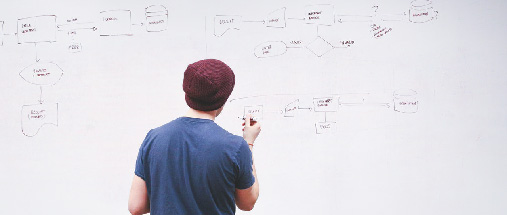
If you’re going for a job in tech, it’s likely that you’ll face a technical interview at some point. While some employers favour a separate technical interview, others prefer to include technical questions in a general interview. It is important to note that interviewers are not just interested in your technical knowledge, they are also keen to learn how you approach problems, construct your thought process and demonstrate interpersonal skills, such as communication. Candidates typically find technical interviews challenging, but you don’t have to be like them if you follow the following practical tips to help you prepare.
Use specific examples to show how you have used or picked up technical skills at your workplace. This shows recruiters and HR personnel that you apply theory to practice and reassures them that you know how to translate your knowledge to the employer’s needs.
You can produce a portfolio and take it with you to the interview. Use it to illustrate your answers as you talk, or leave it with the interviewer when you finish. As you only have a limited amount of time during the interview, this is a great way to ensure that interviewers have at least one method of finding out the full extent of your accomplishments.

All technical interviews are different. The questions you will be asked depends on the job description and your current scope of work.
Take time to revise the basics that people in your field should be aware of. Focus on those that are related to your employer’s area of work, as well as knowledge you would be using in the job you are interviewing for. Be sure to know the latest and most relevant theories, debates and developments in that area. This is important since you may have moved away from the fundamentals as you progress in your career.

It’s not always about getting the correct answer
Technical interviewers may ask you to comment on a range of scenarios or hypothetical situations. If you do not know the answer to a question, show the interviewer how you might go about solving the problem or finding the information you would need to answer the question.
Remember that your interviewer is not only interested in your technical knowledge. They also want to see how you reason and approach problems. If you’re totally stumped, you can ask for a few pointers. If your interviewers oblige, pick up the thread and keep going.
If drawing a diagram will help with your explanation, don’t be afraid to ask for paper and pen, or go to the whiteboard. This is especially true if you are a visual person.
The interview will definitely require you to share your skills and capabilities, however, do not overemphasise your skills. Keep it relevant to the job you are interviewing for and the company you are interviewing with.

Talk about projects
Technical interviewers often focus on projects that you’ve worked on in the past. When you’re asked to talk about a project, be ready to give a brief summary of what it is focused on, how you overcame problems, and what were the final results. If you’ve been involved in a group project, make sure to distinguish your own contribution from the rest of your team. Talk about what you did, and the parts that you took responsibility for.
A good way of getting through this is to step back and think about your project from a layman’s perspective. Assuming your listener knows nothing about your work, come up with five key points that he/she must know about the project. Then, sum up those key points into five sentences that you can expand on if required.
You’ll find that this method is a great way to lay the bare bones of your project both concisely and accurately before non-experts, e.g. recruiters and HR personnel. Having those five key sentences as guidelines is a great way to remind yourself of what you need to talk about if you start panicking midway.
Talk technical, but be understood
Technical interviews also look at your interpersonal skills. You need to show that you can work well with others, and that you can communicate technical information and scientific ideas clearly and concisely to both experts and non-experts.
When communicating ideas, try your best to use simple terms to explain complicated concepts. Avoid technical or scientific jargon, if possible. If you absolutely need to use a few of those, remember to clarify what they mean. It’s always a good idea to focus on the application of the idea – how and why this idea is important, and why your audience should care about it.
Remember that even in a technical interview, not all your interviewers may be experts in your chosen field. Do your best to keep things simple yet meaningful, and make everyone feel included.

Other things to note
Love this article? Share it!